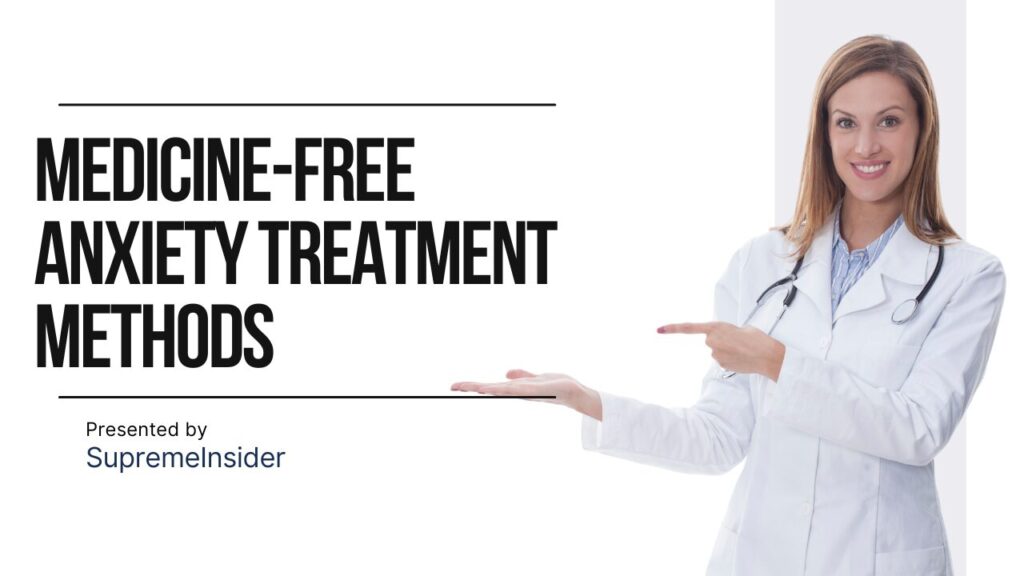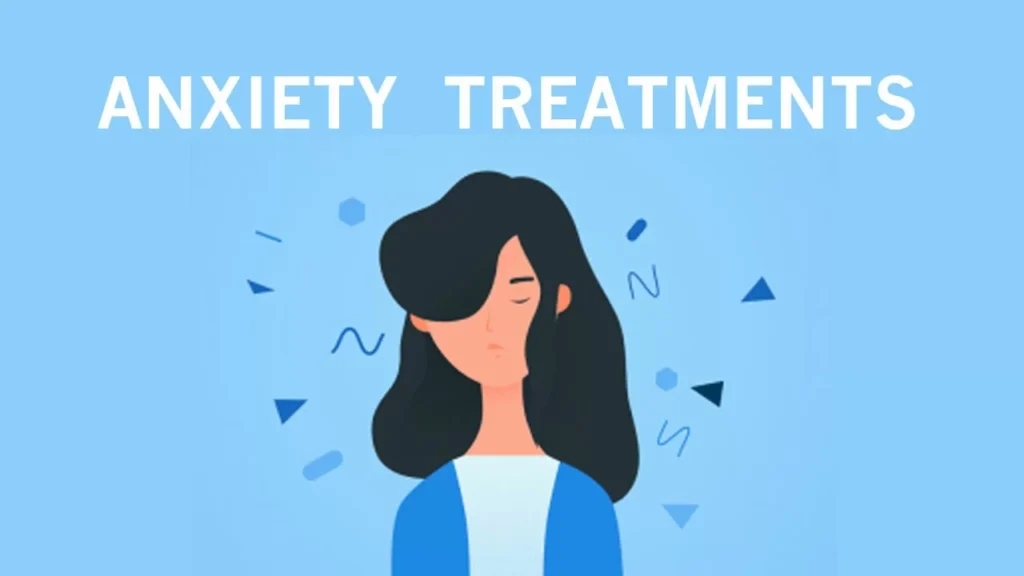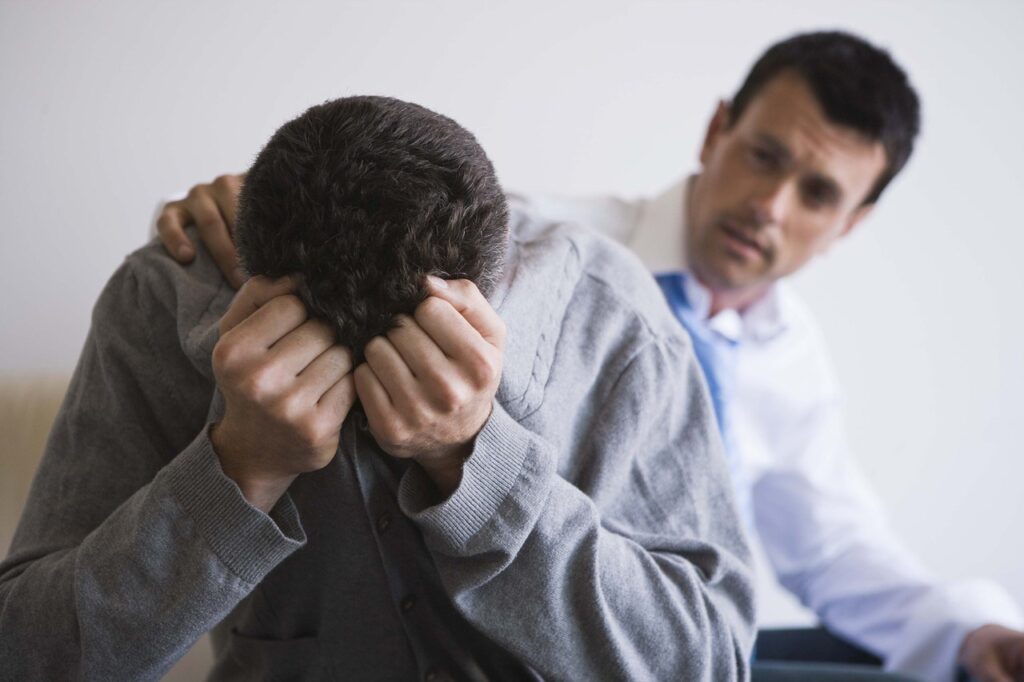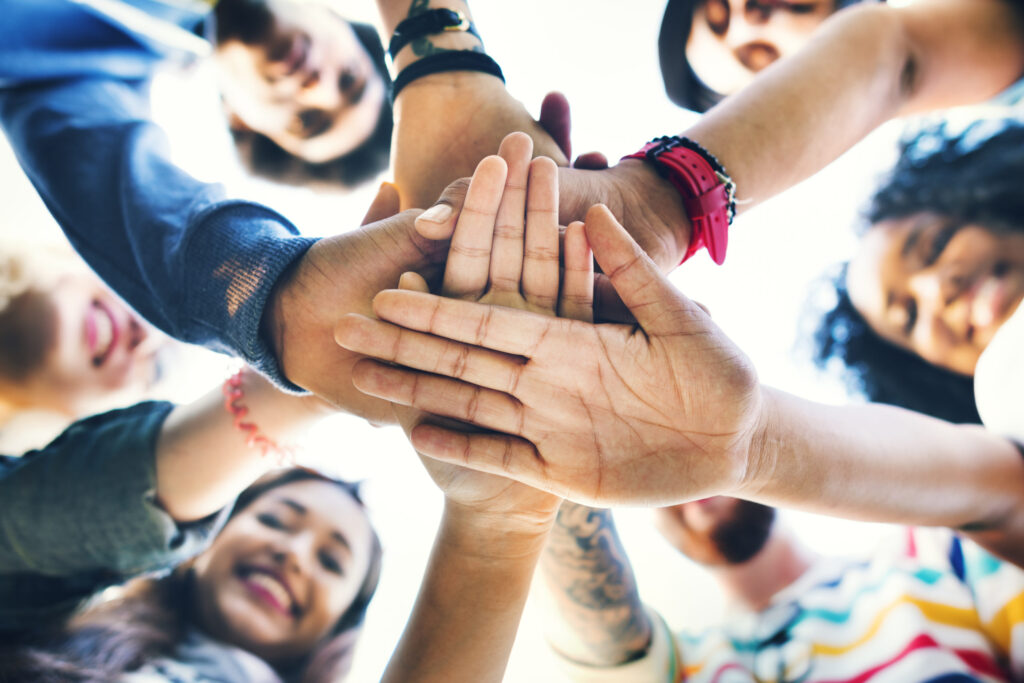Anxiety disorders are among the most prevalent mental health conditions globally, affecting millions of individuals regardless of age, gender, or background. While pharmaceutical interventions like anxiolytics and antidepressants have long been a primary treatment approach, there is a growing interest in medicine-free treatment methods. These alternative strategies, often encompassing holistic and complementary approaches, aim to address anxiety from multiple angles, promoting overall well-being and long-term resilience.

Understanding Anxiety
Before delving into medicine-free treatment methods, it’s crucial to understand the nature of anxiety. Anxiety is more than just occasional worry or stress; it’s a persistent feeling of apprehension, fear, or unease that can interfere significantly with daily life. Anxiety disorders encompass a range of conditions, including generalized anxiety disorder (GAD), panic disorder, social anxiety disorder, and specific phobias. Symptoms can manifest physically, emotionally, and behaviorally, impacting various aspects of an individual’s functioning.
Mindfulness and Meditation
Mindfulness-based practices, including meditation, have gained recognition for their effectiveness in reducing anxiety. Mindfulness involves paying attention to the present moment without judgment, cultivating awareness of thoughts, feelings, and bodily sensations. Through regular meditation sessions, individuals learn to observe their anxious thoughts and emotions without becoming overwhelmed by them. Research suggests that mindfulness-based interventions can lower anxiety levels, enhance emotional regulation, and promote a sense of calm and acceptance.
Yoga and Tai Chi
Physical activity has been shown to have significant benefits for mental health, including anxiety reduction. Practices like yoga and Tai Chi combine gentle movements, controlled breathing, and meditation, offering a holistic approach to stress management. Yoga, in particular, emphasizes the mind-body connection, encouraging practitioners to synchronize movement with breath and cultivate mindfulness. Tai Chi, a traditional Chinese martial art, focuses on slow, deliberate movements and has been linked to improvements in anxiety symptoms and overall well-being.

Breathwork Techniques
The breath is intricately linked to our emotional state, and learning to regulate it can be a powerful tool in managing anxiety. Various breathwork techniques, such as deep breathing, diaphragmatic breathing, and box breathing, can help induce relaxation and reduce the physiological arousal associated with anxiety. By slowing down and deepening the breath, individuals can activate the body’s relaxation response, counteracting the fight-or-flight response triggered by anxiety. Incorporating breathwork into daily routines can promote a sense of calm and balance.
Herbal Remedies and Supplements
For those seeking natural alternatives to pharmaceuticals, herbal remedies and supplements may offer relief from anxiety symptoms. Certain herbs, such as chamomile, lavender, and passionflower, have been traditionally used for their calming properties. Supplements like magnesium, omega-3 fatty acids, and L-theanine have also shown promise in reducing anxiety and promoting relaxation. While research on the efficacy of these natural remedies is ongoing, many individuals report benefits from incorporating them into their anxiety management regimen.
Acupuncture and Acupressure
Traditional Chinese medicine modalities like acupuncture and acupressure target the body’s energy pathways, known as meridians, to restore balance and alleviate symptoms. Acupuncture involves the insertion of thin needles into specific points on the body, stimulating the flow of qi, or vital energy. Acupressure applies pressure to the same points using fingers or hands. Both techniques have been associated with reductions in anxiety and stress, possibly by modulating neurotransmitters and promoting relaxation.

Art Therapy and Creative Expression
Expressive arts therapies, including art therapy, music therapy, and dance/movement therapy, offer nonverbal outlets for processing emotions and reducing anxiety. Engaging in creative expression allows individuals to explore their feelings in a safe and supportive environment, fostering self-awareness and emotional healing. Art therapy, for example, uses visual art mediums like painting, drawing, and sculpting to facilitate self-expression and insight. Music therapy utilizes music listening, composition, and improvisation to promote relaxation and emotional release.
Cognitive-Behavioral Techniques
While not strictly medicine-free, cognitive-behavioral techniques offer evidence-based strategies for managing anxiety without relying solely on medication. Cognitive-behavioral therapy (CBT) is a widely used psychotherapeutic approach that helps individuals identify and challenge maladaptive thought patterns and behaviors contributing to their anxiety. By learning coping skills such as cognitive restructuring, relaxation training, and exposure therapy, individuals can develop effective tools for managing anxiety symptoms and preventing relapse.
Lifestyle Modifications
In addition to specific treatment modalities, lifestyle modifications can play a significant role in anxiety management. Adopting a healthy lifestyle that includes regular exercise, nutritious diet, adequate sleep, and stress management techniques can bolster resilience against anxiety. Physical activity releases endorphins, the body’s natural mood elevators, while a balanced diet provides essential nutrients for brain health. Prioritizing self-care activities and setting boundaries can also help reduce stress and promote overall well-being.

Social Support and Community Engagement
Finally, fostering social connections and engaging with supportive communities can provide invaluable resources for managing anxiety. Strong social support networks offer emotional validation, practical assistance, and a sense of belonging, buffering against the negative effects of stress and anxiety. Whether through family, friends, support groups, or online forums, connecting with others who share similar experiences can reduce feelings of isolation and encourage the journey toward healing.
Conclusion
Anxiety treatment is not one-size-fits-all, and individuals may benefit from exploring a combination of medicine-free treatment methods tailored to their unique needs and preferences. By incorporating holistic approaches such as mindfulness practices, physical activity, herbal remedies, and expressive therapies, individuals can empower themselves to manage anxiety effectively and cultivate resilience for long-term well-being. While medication may still have a role in some cases, embracing alternative strategies can offer additional tools for navigating the challenges of anxiety and reclaiming a sense of control over one’s mental health.